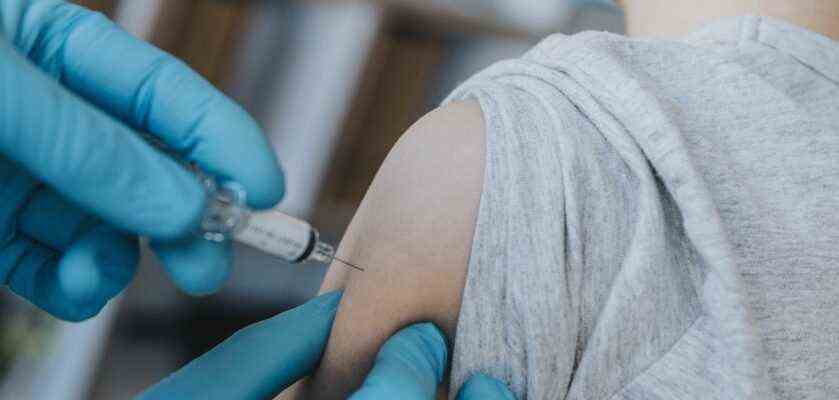Sometimes fast is not fast enough. Although several vaccines against Covid-19 have been developed in less than a year and despite considerable progress in the vaccination campaign, the pace is to be increased further. According to the New York Times the US Food and Drug Administration (FDA) has pushed the manufacturers of the mRNA vaccinesto include more children between the ages of five and eleven in safety studies. Younger children are rarely and rarely seriously ill with Covid-19 – but if they are not vaccinated, they can pass the virus on.
In the US, children from the age of twelve have been vaccinated since the FDA approved Pfizer / Biontech’s vaccine in April; For Moderna, the age rating is from 18 onwards. Safety studies by the manufacturers are ongoing in order to find out about complications at an early stage. The FDA apparently wants Biontech / Pfizer and Moderna to include at least 3,000 children between the ages of five and eleven in the investigations. That would be twice as many as Pfizer had planned. The Moderna study, which began in March, would have included a good 2000, and thus fewer than the 3000 children targeted by the FDA, from this age cohort.
The smaller the group size in a study, the more difficult it is to discover rare side effects. Statistically, a serious illness is hardly noticeable among a few thousand test persons. However, with millions of people being vaccinated, manufacturers and regulators should ensure that extremely rare complications are discovered. Recently there have been reports of cardiac muscle and pericardial inflammation near the time of the vaccination.
By the end of June, 1,200 suspected post-vaccine myocarditis or pericarditis had been reported to the US Disease Control Agency (CDC), including 500 in people under the age of 30. The complaints were mostly mild. In relation to the number of people vaccinated, this results in a rate of 13 suspected cases per million complete vaccinations; a causal relationship has not been proven. The figures are based on an outdated reporting system in which patients and doctors feed their suspicions of side effects themselves.
According to the CDC, the benefit of the vaccination is as follows: One million vaccinations for 12 to 17 year-olds would prevent 5700 virus infections in the age group, as well as 215 hospital admissions and two deaths. US paediatricians recently reported that four million children and adolescents have tested positive for the virus since the pandemic began – and 349 have died from it.
More security data would be welcome. “A good suggestion from the FDA,” says Thomas Mertens, Chairman of the Standing Vaccination Commission (Stiko) on request. “The more subjects in approval studies, the better for safety.” Whether 3000 participants in the young age group are enough is questionable, as the heart muscle inflammation rate of 13 to a million shows. “It is not yet possible to discover rare adverse drug reactions. Just think of cerebral vein thrombosis and myocarditis, which were not seen in the approval studies,” says Mertens.
A spokesman for Moderna cited the New York Times with the fact that the company wanted to expand studies in order to “have more security and a larger database, which increases the likelihood of discovering less frequent side effects”. Emergency approval of the vaccine for younger children is expected in “winter 2021 or spring 2022”. Pfizer could meet FDA requirements more quickly, and data may be available in September for five- to eleven-year-olds, and soon after that for two- to five-year-olds. In November there may be findings for the age group six months to two years – so far there is “no reason to deviate from the schedule,” said a spokeswoman. President Biden recently announced that there would “soon” be approval for the age group five to eleven without a time limit.
Stiko boss Mertens, whose commission only recommends vaccination in Germany from the age of 16, sees it as the task of the licensing and control authorities to define requirements for safety studies. According to experts, the benefits of vaccination far outweigh the potential harm. This relationship becomes more and more evident with increasing age. Because adolescents, and especially children, have little health risk from an infection with Sars-CoV-2 and the exposure to “Long Covid” is controversial, the safety requirements for vaccines for the youngest are particularly high.
Mertens suspects the possible psychological benefit of a vaccination for children and adolescents, but he is skeptical of the influence on the course of the pandemic. The virologist has emphasized several times that school openings and relief in public life should not be linked to child vaccination. The containment of the pandemic – combined with individual protection – would therefore be effectively achieved by quickly vaccinating those adults who could not or did not want to be vaccinated before.

